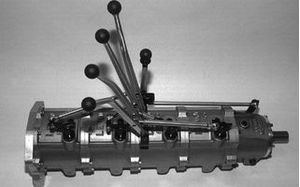Decade of Growth for Auto Parts Industry May Soon be Over
Companies specialized in production, supply and selling of automobile parts have been enjoying a decade of consistent growth, but analytical experts assume that a wide range of negative trends such as the downturn of car sales, increasing prices for raw materials and significant expenditures on Research & Development give little ground for optimistic predictions.

The collection of ambiguities and doubts in
regard to leading technologies of the future, unsettled issues with import
tariffs and numerous disagreements between major countries (especially US and
China) will have a negative impact on financial statuses of numerous auto parts
manufacturers and suppliers, reducing their investment capacities.
The auto business is already the in
transitional period, reducing payment records in expectation of possible
financial instabilities. According to one survey, sector reduced the number of
jobs almost by 22,000 in the U.S. during the first 5 months of 2019, or 211%
more than during the same period last year.
Neal Ganguli, the head of the auto supply base
group for Deloitte, assumes that business approaches and strategies will play a
major role in determining winners and losers in the future.
Mr. Ganguli is convinced that past achievements
won’t ensure a bright future. The industry itself will continue growing, but the
supply base is also assumed to undergo significant changes. Thus, if the cost
of auto components per car is going to rise, it does not necessarily guarantee
prosperity for all the parties involved in the business.

Moreover, Ganguli thinks that all financial
achievements of the industry over recent years have been a bit deceitful. Since
the time of Great Recession, car suppliers have accumulated approximately $510
bln in shareholder value, nearly doubling this parameter compared to the
pre-Recession time.
But the thing is that the growth rate was not
equally allocated. The top third of suppliers enjoyed more than 99% of this
growth. It is assumed that negative trends in the auto
industry will force suppliers to consolidate with other businesses or find the
way to diversify their product lines.

The consolidation process can be specified by long-term perspectives on directions of the market development. According to the study, such areas of the auto business as gearboxes and axles production are predicted to drop 6 to 10%, respectively, by 2025. At the same time, new types of vehicles (electric and self-driving) are assumed to rise. According to Deloitte, electric drivetrain technologies are to boost by 306 %, battery and fuel cell segments by 266 % and cutting-edge driver-assistance systems and sensors by 190 %.
The influx of capital in these segments are predicted to be spurred because of sinking car sales, as suppliers want to ensure more stability in a fluctuating market. Slowdown tendencies in the rates of economic growth will accelerate consolidation processes, resulting in more divesting or acquiring.








